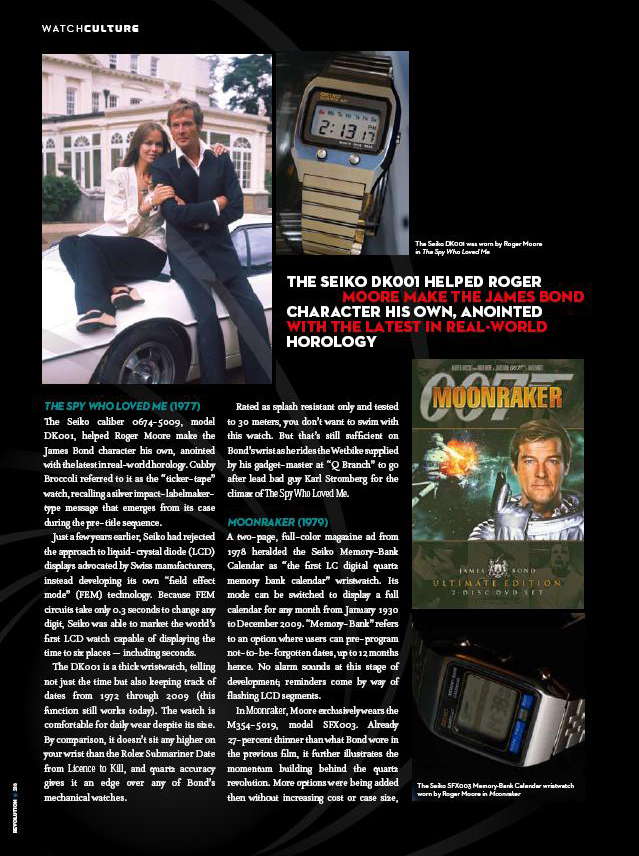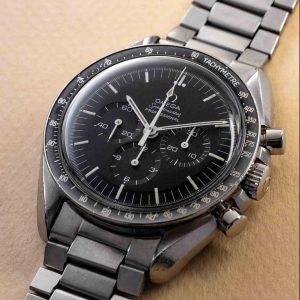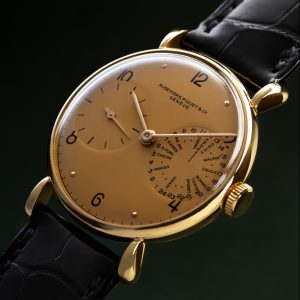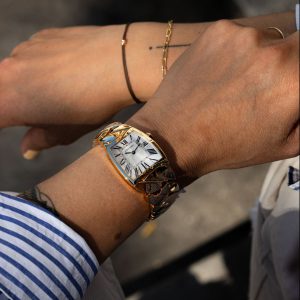About era 1970 and up

Last man on the moon and quartz. The seventies meant 'make love, not war', the last man on the moon, the quartz hype and mechanical watch crisis.

By AWCo on 24 June 2019
The Vietnam war was coming to an end, this was the first ‘television’ war in history. People all over the world saw what was happening and the awareness of people concerning politics and well-being was bigger than ever. Groups of people from the younger generations in this decade united to make the world a better place. They also wanted to distinguish themselves in different ways since they were not afraid to let the world know about their idealistic ideas, ultimately becoming the hippies. These people with long hair and wide colorful clothing did influence the world even though their support was decreasing in the 1970s. These hippies began to raise awareness for sustainability and environmental pollution, and even though real hippies have disappeared mostly from society, their ideas are today more relevant than ever.
Mission Apollo 17
The seventies had something else in store for the world, quartz watches…The development of quartz watches began already in the 1960s in Switzerland but really took off a decade later. In the early seventies, some Swiss watch brands had their first models with quartz movements on the market and their accuracy was unrivaled since these type of watches are not mechanical. The competition among watch manufacturers became more fierce and one brand, in particular, made business unpleasant for the big Swiss houses; Seiko.
The Japanese manufacturer had the Astron, a quartz watch, which was super accurate, relatively cheap and much easier to produce compared to mechanical watches. This really meant the beginning of the quartz crisis. Some mechanical watch manufacturers went out of business and others were urged to work together in order to survive. The watch industry had always been the biggest industry in Switzerland and is a big supplier of local employment. In the seventies and eighties, the employment in the Swiss watch industry dropped with 60% which really reveals how heavily the quartz crisis had struck.
'The Swiss watch industry dropped by 60%.'
The Japanese manufacturer had the Astron, a quartz watch, which was super accurate, relatively cheap and much easier to produce compared to mechanical watches. This really meant the beginning of the quartz crisis. Some mechanical watch manufacturers went out of business and others were urged to work together in order to survive. The watch industry had always been the biggest industry in Switzerland and is a big supplier of local employment. In the seventies and eighties, the employment in the Swiss watch industry dropped by 60% which really reveals how heavily the quartz crisis had struck.
Luckily some of the biggest houses simply didn’t partake in this quartz hype and never made such a battery powered the watch and didn’t merge with other brands. Therefore they are today still de biggest names in the game. The beauty of a mechanical watch movement is the craftsmanship and luckily mankind hasn’t forgotten about that.














